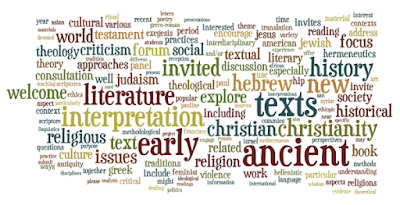Emil Cioran (8 April 1911 – 20 June 1995) was a Romanian philosopher and essayist, who published works in both Romanian and French. His work has been noted for its pervasive philosophical pessimism, style, and aphorisms, frequently engaged with issues of decay, and nihilism. His works often depict an atmosphere of torment, a state that Cioran himself experienced, and came to be dominated by lyricism and, often, the expression of intense and even violent feelings. The books he wrote in Romanian especially display this latter characteristic. Preoccupied with the problems of death and suffering, he was attracted to the idea of suicide, believing it to be an idea that could help one go on living, an idea which he fully explored in On the Heights of Despair. He revisits suicide in depth in The New Gods, which contains a section of aphorisms devoted to the subject. The theme of human alienation, the most prominent existentialist theme, presented by Jean-Paul Sartre and Albert Camus, is thus formulated, in 1932, by young Cioran: "Is it possible that existence is our exile and nothingness our home?" in On the Heights of Despair (an internationally acclaimed book). Other works of his include:
Cartea amăgirilor ("The Book of Delusions")
Schimbarea
la față a României ("The Transfiguration of Romania")
Lacrimi și
Sfinți ("Tears and Saints")
Îndreptar pătimaș ("The Passionate Handbook")
Ion Druţă, generally spelled "Ion Drutse" in
English, (born September 3, 1928, Horodişte, Republic of Moldova) is a writer,
poet, playwright, and literary historian, honorary member of the Romanian
Academy, his works being centered around the village life. Some of his (literally
translated) novels are:
Frunze de
dor (“Longing Leaves”)
Povara
bunătății noastre (“The Burden Of Our Goodness”)
Clopotnița (“The
Belltower”)
Întoarcerea
țărânii în pământ (“The Return Of The Dust To The Earth”)
Biserica Alba
(“The White Church”)
Păsările tinereții noastre (“The Birds Of Our Youth”)

Lucian Blaga (9 May 1895 – 6 May 1961) was a Romanian
philosopher, poet, playwright, poetry translator, and novelist. He was
heavily inspired by Kant, Hegel, Nietzsche, Goethe, Plato, and his works are
philosophical, fitting expressionism and modernism. Some of his most notable
works are:
Poems of Light
(Poemele luminii)
The Prophet's Footsteps (Pașii profetului)
In the Great Passage (În marea trecere)
In Praise of Sleep (Laudă somnului)
At the Watershed (La cumpăna apelor)
At the Courtyard of Yearning (La curțile dorului)
Unsuspected Steps (Nebănuitele trepte)

Mihai Eminescu (born Mihail Eminovici; 15 January 1850
– 15 June 1889) was a Romanian Romantic poet from Moldavia, novelist, and
journalist, and an active member of the Junimea literary society. Eminescu
is considered the godfather of the modern Romanian language, in the same way
that Shakespeare is seen to have directly influenced the English language. He
is unanimously celebrated as the greatest and most representative Romanian
poet.
His poems span a large range of themes, from nature
and love to hate and social commentary. His childhood years were evoked in his
later poetry with deep nostalgia.
Eminescu's poems have been translated into over 60 languages. His life, work, and poetry strongly influenced the Romanian culture and his poems are widely studied in Romanian public schools. Some of his most notable poems are:
De-as avea (“If I Had”), the first
poem of Mihai Eminescu
Ce-ti doresc eu tie, dulce Românie (“What I Wish You, Sweet Romania”)
Somnoroase păsărele (“Sleepy birds”)
Pe lângă plopii fără soț (“Nearby The Unparalleled Poplars”)
Lacul (“The Lake”)
Luceafărul (“The Vesper”)
Floare albastră (“Blue Flower”)
Dorința (“Desire”)
Sara pe deal (“Evening on the Hill”)
O, rămai (“Oh, Linger On”)



Aucun commentaire:
Enregistrer un commentaire
Bonjour !
Votre commentaire sera bientôt en ligne.
Merci d'échanger avec nous !
Gabriel et Marie-Hélène.